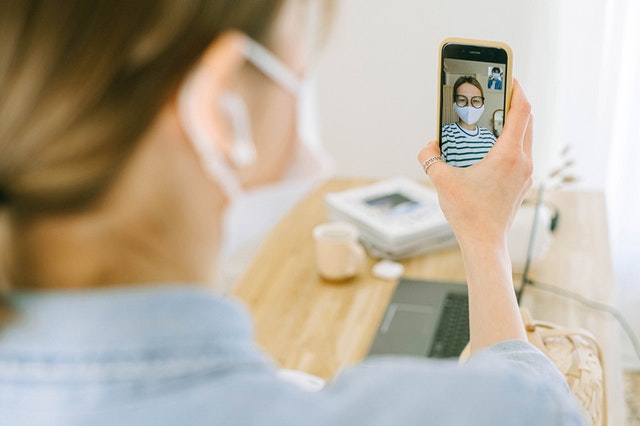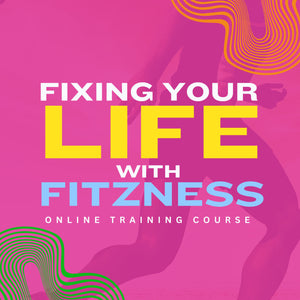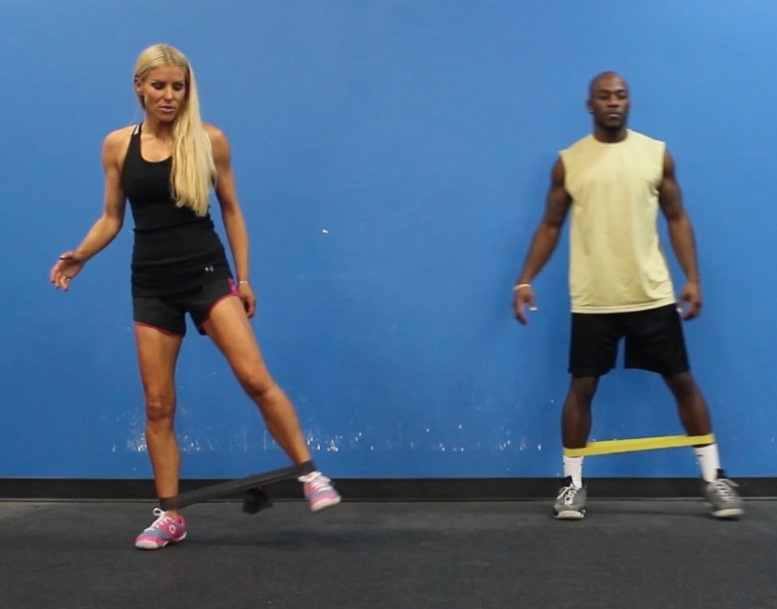The world has changed immeasurably in the past few months. At the start of 2020, we had plans of getting fit, eating well, traveling more, and making more time for our friends and family. Fast forward to the middle of the year, and the economy is in free fall while a novel virus is wreaking havoc across the globe. It can be challenging to feel optimistic and have any mojo to do anything productive when everything seems so insignificant. As we try to navigate our way through a new normal, we need to protect our mental health and physical well being.
With our favorite restaurants closed, the cinemas shut, and bars no longer serving, we can risk becoming isolated in our own homes. While you might adore your humble abode, you may be struggling with not getting your daily gym fix, your favorite healthy takeaway on a Friday night, or giving your mom and dad a hug. The lack of social existence has come suddenly, and we can struggle to cope with this. You may reach for the cookies a little too often as a form of comfort, you might stay stagnant on your sofa watching rolling news, and you may find sleep is a distant memory. To thrive during this coronavirus pandemic, you need to follow this guide to protect your physical health and your mental well being.
Stay Social
Just because you cannot be with your nearest and dearest physically, you can utilize every iota of twenty-first-century technology to stay in touch with friends and family. Seeing friendly faces on your laptop screen can lift your mood and make you feel less alone. Even if you live with a partner or your family, there will still be people that you miss seeing from outside of your home. Feeling alone in your own home has a negative impact on your mental health, so take a look at these 6 self-isolation tips to help you stay more active and feel less anxious.
You might be used to having pals around for coffee, hosting dinner parties for your best buds, and having that annual summer barbecue for friends. You may not feel comfortable hosting or attending large celebrations. This can be soul-destroying.
To combat this, you need to think outside the box. With the advent of Skype and Zoom, you can log on to create a meeting and invite the attendees you wish to join. Here, you can chat via a video call. Make it fun and have a virtual quiz or enjoy a themed evening with pals. Make your meetups a regular thing. Having a weekly catchup with those people who mean something to you will give you something to look forward to when other things around you are more dire. While choosing to be physically distant at the moment, we don’t have to be socially distant. And, always try to remember that this time will pass, and we will be able to meet up, laugh, and enjoy one another’s company again.
Stay Active
It is so easy to wallow when you cannot do the activities that you usually find joy in. You might find that you cannot head to the gym for your spin class, to pump some iron or to partake in your regular HIIT workout. You might not have a chance to go to your Zumba class or play tennis at your local court. Don’t assume that this means you can’t keep fit and stay active. You need to think of different, more coronavirus friendly ways of getting out of a rut.
Consider cycling as your new exercise of choice. While you might not have had the bicycle out of the shed in years, dusting it off and oiling the chain could see you having fun outside. Cycling is a great form of exercise, getting your out of the house and giving you a fantastic cardio workout. Cycling allows you to control your exercise. You can head to the park or on the roads and easily maintain a social distance between yourself and others. This allows you to exercise without having to worry about contamination and subjecting yourself to too much risk.
If you are more of a fan of collective exercise, you cannot take part in your usual classes in the same way. Now, for the time being, exercising outdoors is safest. If you know a personal trainer at your gym who is doing outdoor classes, sign up. There is guidance to allow these sorts of classes to take place so people don’t share equipment, and hand sanitizer is readily available. You should be in charge of your own health and safety when it comes to embarking on activities during the Covid-19 pandemic.
Don’t Watch The News
When the world changed a few months ago, everyone was glued to their TV screens, eager to catch up on the latest developments. The sudden change to our lives meant that we relied on rolling news channels more than ever before. However, this can slowly become an unhealthy addiction. While it’s responsible to keep abreast of global coronavirus developments, the idea of never tearing yourself away from the news can cause acute bouts of extreme anxiety. This can make it difficult for you to concentrate on other things, your sleep pattern may be negatively affected, and you might struggle to think about anything other than the pandemic.
While the pandemic is a massive new part of our lives, it still doesn’t have to dictate our lives. Yes, you are adapting to a new normal, but tear yourself away from your news watching. Instead, switch on Netflix and watch a comedy box set or two. Catch up with some new films on Amazon Prime. Even better, banish the screen for a little while altogether. Read a book, educate yourself on something that you’re really interested in, or write yourself. Many people find that offloading their thoughts through writing can unburden their minds, resulting in a less stressed existence.
News isn’t just on our TV screens in the twenty-first century. You have your smartphone with you at all times, and you are only ever a click away from a news website or your social media feeds. These are the number one ways of accessing news content for millennials. Set yourself a screen time limit on your phone every day, and never use your phone after 8 pm every night. This gives you the chance to switch off from world events to allow your mind and your thoughts to calm down.
Social media has a lot to answer for when it comes to damaging our self-esteem and making us feel anxious or depressed. Now the coronavirus pandemic has emerged, social media can be even more detrimental to our mental health. Use it to communicate with friends and family, but don’t scroll endlessly, causing worry and anxiety.
Sleep
In the pandemic world, many people have reported struggling to sleep at night. This is no surprise given the fact that we have all had to shift our thought processes and daily lives so dramatically. For some, not sleeping well could mean broken sleep, more vivid dreams, or struggling to dose off. For others, sleep issues can be more damaging and can turn into chronic insomnia. To combat this, you need to construct a whole new sleep routine.
Consider how you can relax every evening and set the routine in motion after dinner. Eat a light meal, and then turn the news off. Put your smartphone to one side and think about other activities to maintain a sense of calm. Think about running a hot bath and having a long soak in the tub. Light some scented candles and listen to some chilled out music. Doing this can help you to unwind and feel relaxed. Alternatively, you might prefer a spot of meditation to clear your mind. Find a quiet place and concentrate on your breathing. Close your eyes, and complete some mindfulness exercises.
For many people, beginner yoga sessions have helped them to unwind and feel ready for bed. Short sessions led by instructors online for free can help you strengthen your core, relax your mind, and utilize postures to relieve stress. Yoga isn’t the realm of hippies and dreadlocked laid back types. Many people enjoy yoga as an activity to help them find an even keel mentally. If you are struggling with anxiety during the lockdown, make sure that you give yoga, meditation, or mindfulness a go.
Protecting your mental health and physical well being can feel like a challenge in these uncertain times. You might be worried about your job, your family’s future, and the state of the world. These are big issues that we may not have had to consider before. If you are full of doubt and worry, you are not alone. It’s important that you talk through your thoughts, whether this is to a family member, a friend, or someone more objective like an online counselor. Stay active, forget about your social media profiles for a little while, have a news curfew, and get some quality shut-eye. Follow this guide, and you can protect your mental well being and physical health during the pandemic.
Photo by Ivan Samkov from Pexels






